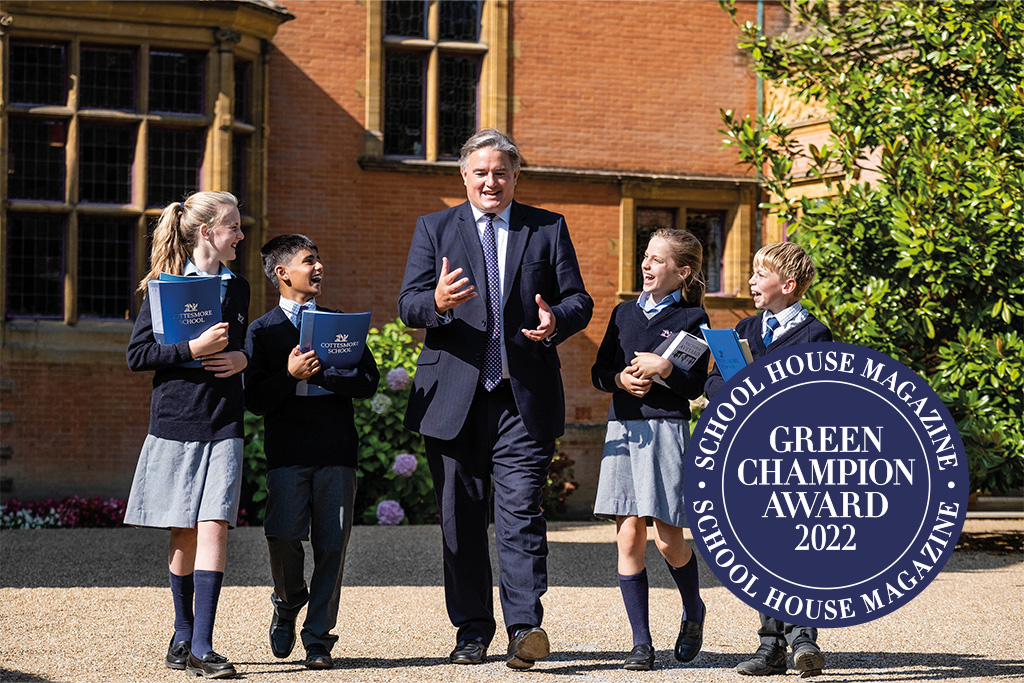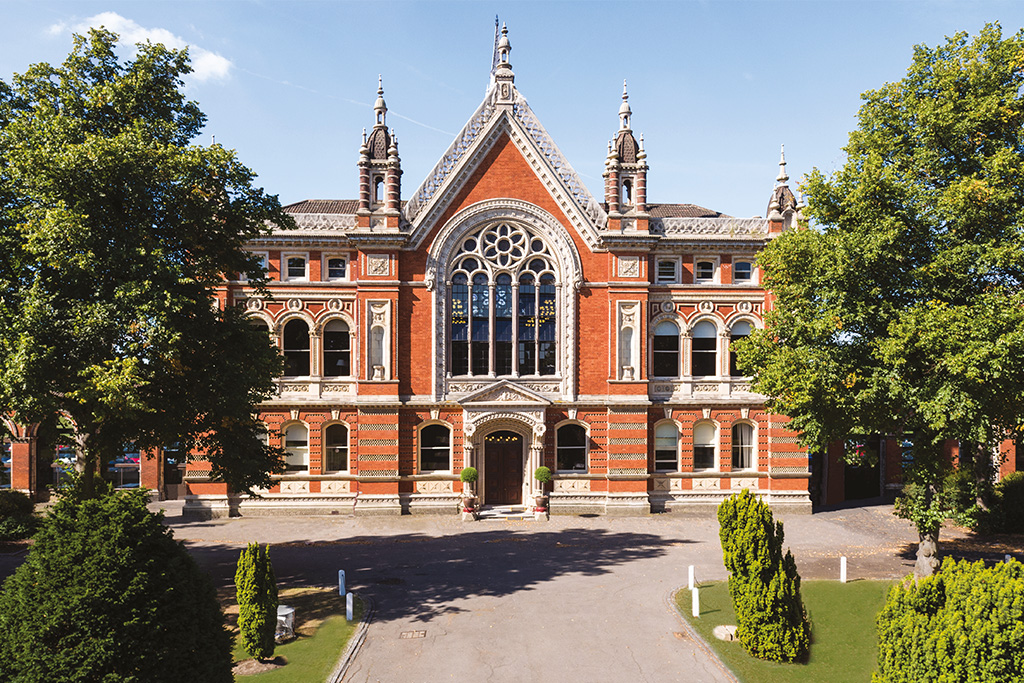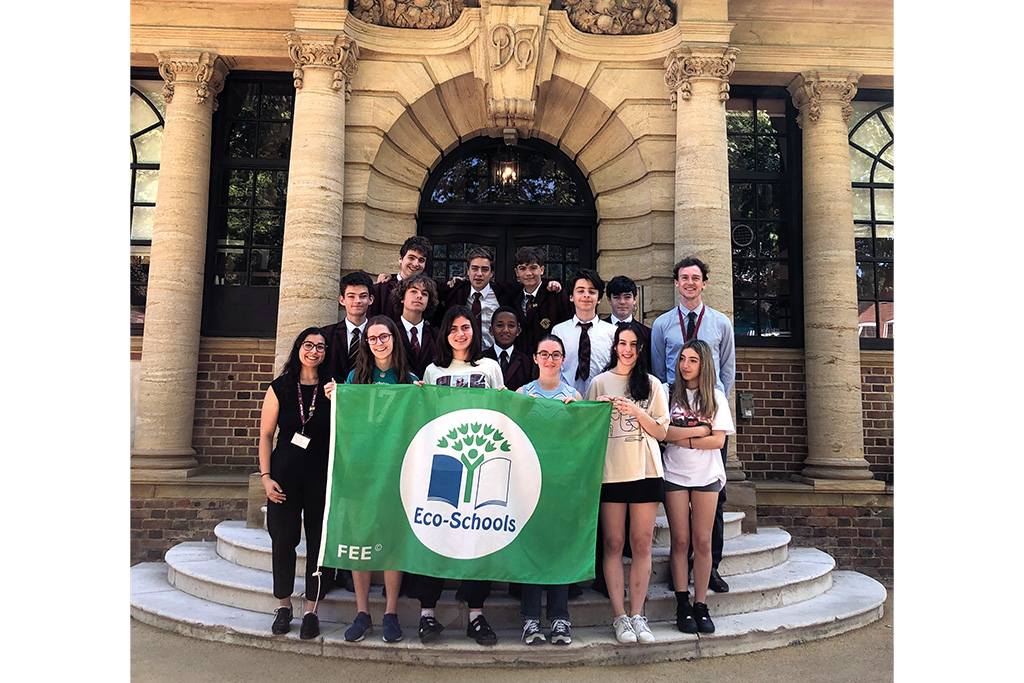School House Green Champion Award 2022
By
3 years ago

Environmental journalist Anna Turns showcases the diversity of entries and announces the winner of the new School House Green Champion Award 2022!

With more than 40 impressive entries from around the UK, a lot of thought went into the judging of School House’s first School House Green Champion Award 2022. Many schools already have active eco committees and take part in the Eco Schools scheme – hopefully that will all be the baseline for every setting in the future.
But in the face of the twin crises of both climate change and loss of biodiversity, education, and wider society in fact, require a massive step change. Our school children need to learn how to be more resilient than ever before. They need to know how to adapt, learn to deal with unpredictability, and channel their frustration into motivation to demand more positive change.
The best tools we can equip children with now are critical thinking, the ability to problem solve and collaborate in a creative way. They don’t need to memorise facts, they need to develop their sense of agency through experiences that are fun, not fear-based. That innate ability to ask ‘why?’ and question the norm is the most powerful gift that needs nurturing.
Many brilliant schools are doing this through a child-led approach whereby young people have the freedom to experiment with ideas and find their voice within a peer-to-peer learning environment. It’s also fundamentally important that young people see the significant adults in their lives walking the walk, not just talking the talk.

That’s why we looked for schools with staff communities taking proactive steps to quantify the tangible changes they were making, while presenting sustainability as the foundation for education rather than an add on or afterthought.
Imagination was a common theme. Year 9 students at Wychwood School in Oxford have been using a 3D printer to print blocks that represent temperature changes throughout the decades. In association with the Royal Meteorological Society, they used data from the Central England temperature record, the longest continually-measured record of its kind in the world, to print decadal blocks representing average monthly temperature data from January 1659 right up to December 2018.
These red weather blocks, each with small upright towers for each of the 120 months within each decade, can be slotted together and played with, making an abstract concept more hands-on and relatable. The project was on display to the public at last year’s COP26 climate conference in Glasgow.
At London’s Village Prep School all pupils were involved in organising an eco-conscious fashion show that highlighted the many ways that fast fashion damages the planet, from pollution to deforestation. Some pupils showcased sustainable fashion innovations and made their own clothes by upcycling everything from the cardboard from loo rolls to old CDs, and next time they put on a play they’re going to use existing costumes or make them rather than buying new ones.

In Sussex, Bede’s eco-schools committee produced a video to inspire classmates to lower their carbon footprints by using public transport and switching to vegetarian meals once a week. Food waste is also weighed and monitored. An environmental writing competition inspired pupils to think about their own nature connection, with entries drawing on learnings from both science and English. The inaugural competition was judged by author and founder of the Knepp Estate’s rewilding programme, Isabella Tree.
Another inspiring school visitor attended Shrewsbury School in Shropshire. Professor Dave Goulson, an insect expert at the University of Sussex opened the new pollinators’ garden, with two small orchards and native flowers planted by students.
So, to the winner!
Three schools stood out to me and fellow judges, editor Victoria Lambert, and editorial director Lucy Cleland, who says: ‘I’m loving what some schools are doing to embed our environmental and climate challenges not just into peripheral subjects but into the mainstream – if our children aren’t educated about what’s really going on in a way to empower and inspire them, I really fear for the future.’
The first of two honourable mentions goes to University College School, Hampstead for efforts in becoming the first UK school to achieve gold recognition in every step of UN Climate Neutral Now Initiative which is reducing the school’s carbon footprint while educating pupils. ‘We have placed significant emphasis on environmental sustainability recently,’ says UCS Foundation Environmental Impact Coordinator James Firth. ‘We are excited about the progress, outcomes and our pupils’ role in this work.’ Specific targets, carbon accounting and quantifiable action make change more achievable.
The second honourable mention goes to Dulwich College, London, for its holistic approach to reducing waste, transport emissions, water and energy usage. Measures include installing 18 electric car charging points for staff, more bicycle racks to encourage active transport, the reuse or repurposing of school furniture and fittings, plus getting electricity from certified renewable sources.
However, this year’s winner is a school that tackles the syllabus head on and goes the extra mile to better integrate climate literacy into the teaching timetable. At Cottesmore School in west Sussex, the teaching team, led by Ross Borthwick, set about writing a new syllabus incorporating elements of the pioneering GCSE in Natural History which has recently been approved by Parliament.
New units cover everything from rewilding and habitat conservation to resource management, as well as hands-on projects. For example, pupils design their own sustainable menu following market research, apply maths to cost it and grow some of the ingredients to serve up their carefully sourced dishes.
Congratulations to Cottesmore School and its head Tom Rogerson, and well done to all of the educators and eco-councillors involved.
Hopefully, more teachers, parents and the next generation of eco-conscious students will be inspired to introduce more solutions-focused approaches in their school communities that demonstrate integrity and legacy. Each project goes some way to moving away from overconsumption toward stewardship and citizenship. Maybe this younger generation can teach us a thing or two.
This year’s winner will receive a selection of books on environmental themes for its library, courtesy of DK Books.
Anna Turns is author of Go Toxic Free: Easy and Sustainable Ways to Reduce Chemical Pollution (Michael O’Mara, £14.99)
Power to the Pupils
Lots of schemes, resources and action plans already exist that will encourage climate literacy and environmental awareness across all age groups.
EduCCate Global is training teachers around the world to deliver climate change education: educcateglobal.org
Eco Schools run a seven-stage framework that enables pupils to drive environmental change within their school and work towards Green Flag accreditation: eco-schools.org.uk
Plastic Clever Schools is an initiative run by teenage sisters Ella and Amy Meek founders of charity Kids Against Plastic, with more than 1,300 schools signed up: plasticcleverschools.co.uk
Target 4 Green is run by consultant Peter Milne, who specialises in developing engaging educational programmes focused on environmental awareness and outdoor education: target4green.com
Plastic Free Schools is a Surfers Against Sewage programme with more than 3,000 schools working towards accreditation that encourages empowerment and for students to campaign for better regulations: plasticfreeschools.org.uk
Let’s Go Zero is working with the Department for Education on setting targets that support schools in the transition to becoming zero carbon by 2030. Seven proposed government policy actions include eco-friendly building specs and sustainability-related careers advice: letsgozero.org
See the listings of the schools mentioned here: Cottesmore School, Dulwich College, UCS Hampstead, Wychwood School, Bede’s Senior School, Shrewsbury School



